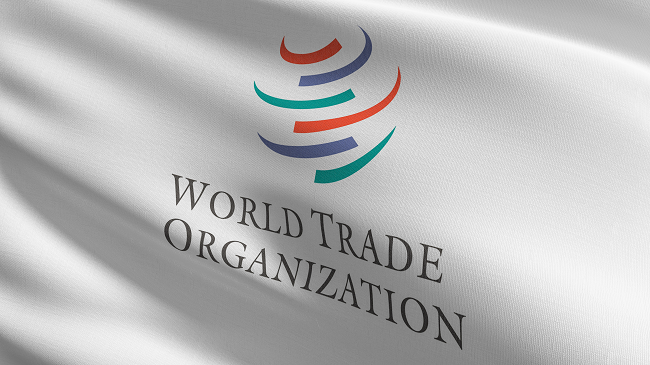
Lockdowns in China and the ongoing war in Ukraine are creating what the leader of the World Trade Organization (WTO) is calling a “darkened” picture for global trade.
WTO director general Ngozi Okonjo-Iweala also said that governments and international institutions were failing to act to address the supply chain crises weighing down international business.
‘Painful’
Writing in today’s Financial Times, Okonjo-Iweala cast a gloomy outlook, saying “supply chain disruptions have been painful for companies and consumers alike… and the war in Ukraine is adding to the strain.”
She added: “With dramatic increases in freight rates diverting shipping capacity towards the most lucrative routes, smaller businesses risk finding themselves locked out of global supply chains.”
‘Not working together’
She noted freight disruptions across Chinese ports due to recent Covid-19 lockdowns and Ukrainian shipments being halted through Black Sea ports as two of the most pressing issues.
However, she criticised governments and international institutions for “not working together” to try to ameliorate the problems.
She said: “One clear message from business leaders was that structural weaknesses were pressuring supply chains even before the pandemic. These problems have only become worse, and we need to tackle them. Solutions [are] needed to make trade flows more efficient and more resilient.”
“Traders often don’t know about upstream or downstream disruptions until it is too late to reroute or reschedule cargoes,” she added. “This has made the current supply crunch even harder to manage.”
Statistics
Since the start of the Russian invasion of Ukraine alone, the value of global trade has fallen 2.8%, according to figures from the Kiel Institute for the World Economy.
The Guardian has also reported that lockdowns in China mean that the economy there could now only grow by around 4% – much less than expected.
In the UK, figures from the IOE&IT’s recent Quarterly Exporter Monitor show export activity in the country has dropped since 2020, though Brexit has also been a contributing factor.
“Since 2020 there has been a general drop in exporter activity and so seeing the expected post-Covid rebound fall flat offers little hope for growth as global geopolitical risk heightens,” said Rebecca Harding, chief executive of Coriolis Technologies.
‘Re-globalisation’
At a recent virtual meeting of government officials, heads of major ports and logistics companies, Okonjo-Iweala called for what she called a ‘reglobalisation’ of the global economy – bringing more countries back into international production networks.
“Deeper, more diversified international markets remain our best bet for supply resilience,” the New York Times reports her saying.
Complicated picture
Okonjo-Iweala admitted that global supply chains are being hit in all directions by a multitude of problems.
Speaking after the virtual meeting, she told the FT: “It’s not just port congestion. It’s problems on land. They said we don’t have enough warehousing, we don’t have enough truck drivers. This is no longer an attractive job for many young people.”
Bigger picture
The global volume of merchandise trade almost quadrupled between 1990-2019 and she said that this success proves the need for current systems to be adapted to deal with threats like pandemics and climate change.
In today’s FT article she has implored greater usage of the WTO’s Trade Facilitation Agreement, which she claims will cut unneeded bureaucracy, accelerate customs clearance and reduce trading costs.
But she also issued a plea to governments to boost investment and grant more fast-track planning approvals for port operators wanting to improve things.
She said: “To avoid a further rise in inflationary pressures, we need bold, coordinated action.”



